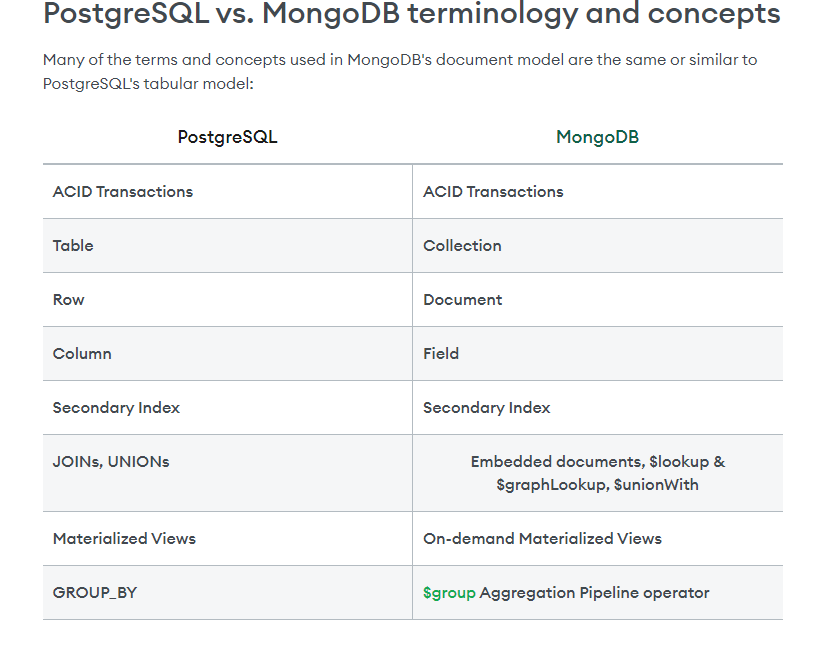Database Type
- MongoDB: A NoSQL document database that stores data in flexible JSON-like documents. Ideal for schema-less data structures or scenarios where data may evolve over time.
- PostgreSQL: An object-relational database (ORDBMS) that enforces a structured schema with defined data types. Well-suited for relational data with well-defined relationships between entities.
Data Modeling
- MongoDB: Documents can have varying structures, enabling flexibility. However, complex queries or joining data across documents might require additional processing.
- PostgreSQL: Schema-based structure ensures data integrity and facilitates efficient querying of related data. Can be less flexible for evolving data models.
Scalability
- MongoDB: Horizontally scalable by adding more shards (partitions) to distribute data across multiple servers.
- PostgreSQL: Can be scaled vertically (upgrading hardware) or horizontally (replication) depending on the use case.
Performance
- MongoDB: Queries on specific fields within documents can be fast. Complex joins or aggregations might require more processing.
- PostgreSQL: Optimized for relational data queries, particularly when joining tables with defined relationships.
Other Considerations
- Familiarity: If your team is more comfortable with one language (JavaScript for MongoDB, SQL for PostgreSQL), that could influence the choice.
- Community and Support: Both MongoDB and PostgreSQL have active communities and extensive documentation.
Integration with Payload:
Both MongoDB and PostgreSQL can be integrated with Payload through appropriate drivers or connectors. Payload’s flexibility allows you to use either database type without limitations.
Choosing the Right Database for Your Payload Project
The best database for your Payload project depends on your specific needs and data characteristics. Here’s a general guideline:
- MongoDB:
- Flexible schema for evolving data
- Primarily working with unstructured data
- Prioritizing ease of data insertion and updates
- PostgreSQL:
- Strong data relationships and integrity
- Complex queries involving joins
- Requiring high-performance relational data access
Remember, there’s no one-size-fits-all solution. Consider the factors above to make the best choice for your headless CMS project

Ref:https://www.mongodb.com/resources/compare/mongodb-postgresql